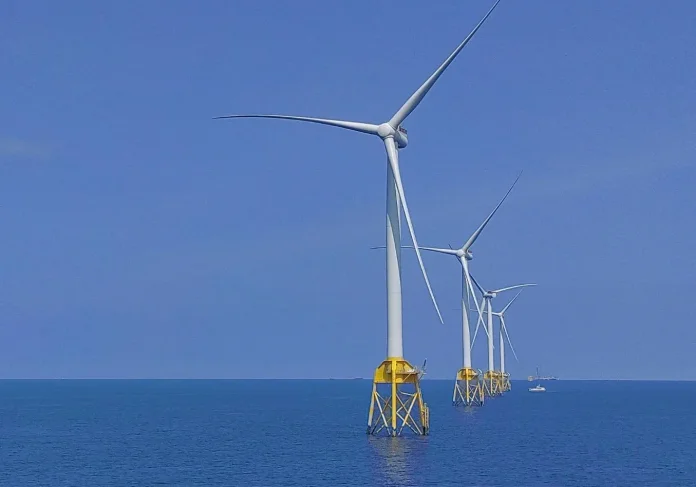WWF and Ørsted have signed a five-year global partnership to drive a fundamental change in the approach to integrating action on climate and biodiversity by advancing offshore wind that strives to achieve a net-positive biodiversity impact. Ørsted and WWF will jointly identify, develop and advocate for offshore wind deployment initiatives and approaches that not only are in balance with nature but also enhance biodiversity.
“The planned expansion of offshore wind risks having a negative impact on biodiversity if done in the wrong way,” says Marco Lambertini, director general of WWF International. “However, if done right, it can support and enhance ocean biodiversity and create a net-positive biodiversity impact. This is why this partnership between Ørsted and WWF is so important to developing offshore wind energy with a net-positive impact on the ocean. It’s ambitious, but it’s absolutely necessary.”
“Governments accelerate the build-out of offshore wind energy to end their dependence on fossil fuels and power the world sustainably,” states Mads Nipper, group president and CEO of Ørsted. “If done in the right way, offshore wind projects can enhance ocean biodiversity, improving ocean health, and thereby address both the climate and biodiversity crises.”
“Addressing climate change and biodiversity loss together allows for a much-needed shift in the way governments, NGOs and businesses work to solve these interrelated crises,” Nipper continues. “Solutions must complement one another, not come at the expense of each other.”
To help make that happen, the partnership will innovate and test tangible initiatives that improve ocean biodiversity in general and can be used as additional measures to achieve a net-positive impact on biodiversity. They will develop science-based recommendations for how governments can incorporate ocean biodiversity requirements in offshore wind development. In addition, they will work to bring together those who use the ocean and those who seek to protect its health and deliver on a common vision for a decarbonized energy system that exists alongside marine nature protection and restoration.
One key issue is how to make space in the ocean for both increased nature and increased offshore wind energy. A renewed and innovative approach to ecosystem-based marine spatial planning which takes an integrated approach to meeting climate and biodiversity goals is needed. This partnership will work to drive forward the international debate and the collaboration needed to bring about this fundamental global shift.
To kick off this work, Ørsted and WWF will invite leading experts to discuss the best way forward at a joint event at COP27. One ambition for the partnership will be to have nature protection and restoration implemented in future offshore wind tenders by governments globally.
The partnership will start with a joint marine ecosystem restoration project in the North Sea, supported by academics in this field. In addition to the development of new methods and technologies to benefit the ocean ecosystem, this work will be closely monitored and documented to help refine the best approach to scaling up and delivering offshore wind with a net-positive contribution to marine biodiversity.
This initial restoration project focuses on improving methods to repopulate highly depleted reef-building species at scale in the North Sea, specifically native oysters (Ostrea edulis) and horse mussels (Modiolus modiolus). These species are considered important ecosystem builders, as the biogenic reefs they form provide vital habitat for a wide range of other marine species.
The solutions delivered during the five-year partnership will support both Ørsted’s 2030 biodiversity ambition and WWF’s clear call to halt and reverse biodiversity loss by 2030. This global partnership is initiated by Ørsted and WWF-Denmark.




